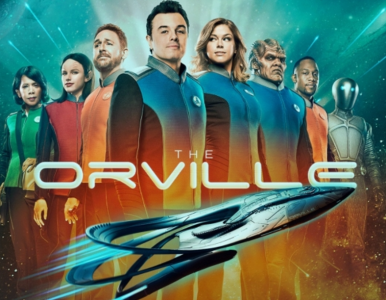- Because Our Children Are Watching
- Join the Cause
- Donate
Written by PTC | Published April 11, 2019
 Most TV comedies today are a lot like your stereotypical college frat-boy: trying to cram in as many sexual innuendos and euphemisms for butts, breasts and genitalia as they can in twenty or so minutes of airtime. Whatever there is of a story arc, plot or character development seems often to be an afterthought; or a mere scaffolding on which to hang the bawdy humor.
This wasn’t always the case. Classic sitcoms continue to draw viewers decades after they originally aired because of the timeless quality of the writing and the broad appeal. In recent years, CBS has taken to airing colorized episodes of I Love Lucy and The Dick Van Dyke show around Christmastime, and these 60-some-year-old reruns often outperform other networks’ original programming. It would be difficult to imagine viewers twenty or thirty years from now seeking-out and watching reruns of 2 Broke Girls, Don’t Trust the B---- in Apartment 23, or I Feel Bad.
Reflecting on the enduring popularity of the Andy Griffith Show, co-star Don Knotts shared Griffith’s dictum, “If it sounds like a joke, throw it out,” thus allowing the series to become more character-driven.
Whether by accident or by design, Seth MacFarlane seems to have taken that sage advice to heart over the last two seasons of his Fox Star Trek-inspired series, The Orville, which has morphed from slapstick, juvenile comedy into a much more thoughtful sci-fi drama with occasional moments of levity.
The trailers released by Fox before The Orville’s 2017 debut showcased the broad physical comedy and frat-boy humor we’ve come to expect from MacFarlane based on his other comedies Family Guy, American Dad and The Cleveland Show; and those elements were definitely present in early episodes. But as the series has evolved over these past two seasons – and especially in this current season -- the gratuitous anatomical references and innuendo has become less and less pervasive. Meanwhile, the show has tackled weighty topics responsibly and with refreshing sensitivity.
Earlier this year we wrote about an episode in which a character becomes addicted to pornography and learns that this empty form of self-gratification had displaced real relationships and meaningful connection with loved-ones. Other episodes have tackled genocide, the hidden dangers of social media, and even relationships haunted by the specter of a past-love – all handled with surprising maturity, sophistication, and with ultimately pro-social messages -- a far cry from the “rape is funny” messages of Family Guy.
It’s too soon yet to say that The Orville is suitable programming for the whole family, though it does appear to be trending in that direction. If the writers and producers continue the good work of writing a thoughtful comedy that doesn’t rely on scatology or sexual innuendo, maybe in twenty- or thirty-years’ time, viewers will nostalgically tune-in to watch reruns of The Orville with their families gathered around.
Most TV comedies today are a lot like your stereotypical college frat-boy: trying to cram in as many sexual innuendos and euphemisms for butts, breasts and genitalia as they can in twenty or so minutes of airtime. Whatever there is of a story arc, plot or character development seems often to be an afterthought; or a mere scaffolding on which to hang the bawdy humor.
This wasn’t always the case. Classic sitcoms continue to draw viewers decades after they originally aired because of the timeless quality of the writing and the broad appeal. In recent years, CBS has taken to airing colorized episodes of I Love Lucy and The Dick Van Dyke show around Christmastime, and these 60-some-year-old reruns often outperform other networks’ original programming. It would be difficult to imagine viewers twenty or thirty years from now seeking-out and watching reruns of 2 Broke Girls, Don’t Trust the B---- in Apartment 23, or I Feel Bad.
Reflecting on the enduring popularity of the Andy Griffith Show, co-star Don Knotts shared Griffith’s dictum, “If it sounds like a joke, throw it out,” thus allowing the series to become more character-driven.
Whether by accident or by design, Seth MacFarlane seems to have taken that sage advice to heart over the last two seasons of his Fox Star Trek-inspired series, The Orville, which has morphed from slapstick, juvenile comedy into a much more thoughtful sci-fi drama with occasional moments of levity.
The trailers released by Fox before The Orville’s 2017 debut showcased the broad physical comedy and frat-boy humor we’ve come to expect from MacFarlane based on his other comedies Family Guy, American Dad and The Cleveland Show; and those elements were definitely present in early episodes. But as the series has evolved over these past two seasons – and especially in this current season -- the gratuitous anatomical references and innuendo has become less and less pervasive. Meanwhile, the show has tackled weighty topics responsibly and with refreshing sensitivity.
Earlier this year we wrote about an episode in which a character becomes addicted to pornography and learns that this empty form of self-gratification had displaced real relationships and meaningful connection with loved-ones. Other episodes have tackled genocide, the hidden dangers of social media, and even relationships haunted by the specter of a past-love – all handled with surprising maturity, sophistication, and with ultimately pro-social messages -- a far cry from the “rape is funny” messages of Family Guy.
It’s too soon yet to say that The Orville is suitable programming for the whole family, though it does appear to be trending in that direction. If the writers and producers continue the good work of writing a thoughtful comedy that doesn’t rely on scatology or sexual innuendo, maybe in twenty- or thirty-years’ time, viewers will nostalgically tune-in to watch reruns of The Orville with their families gathered around.